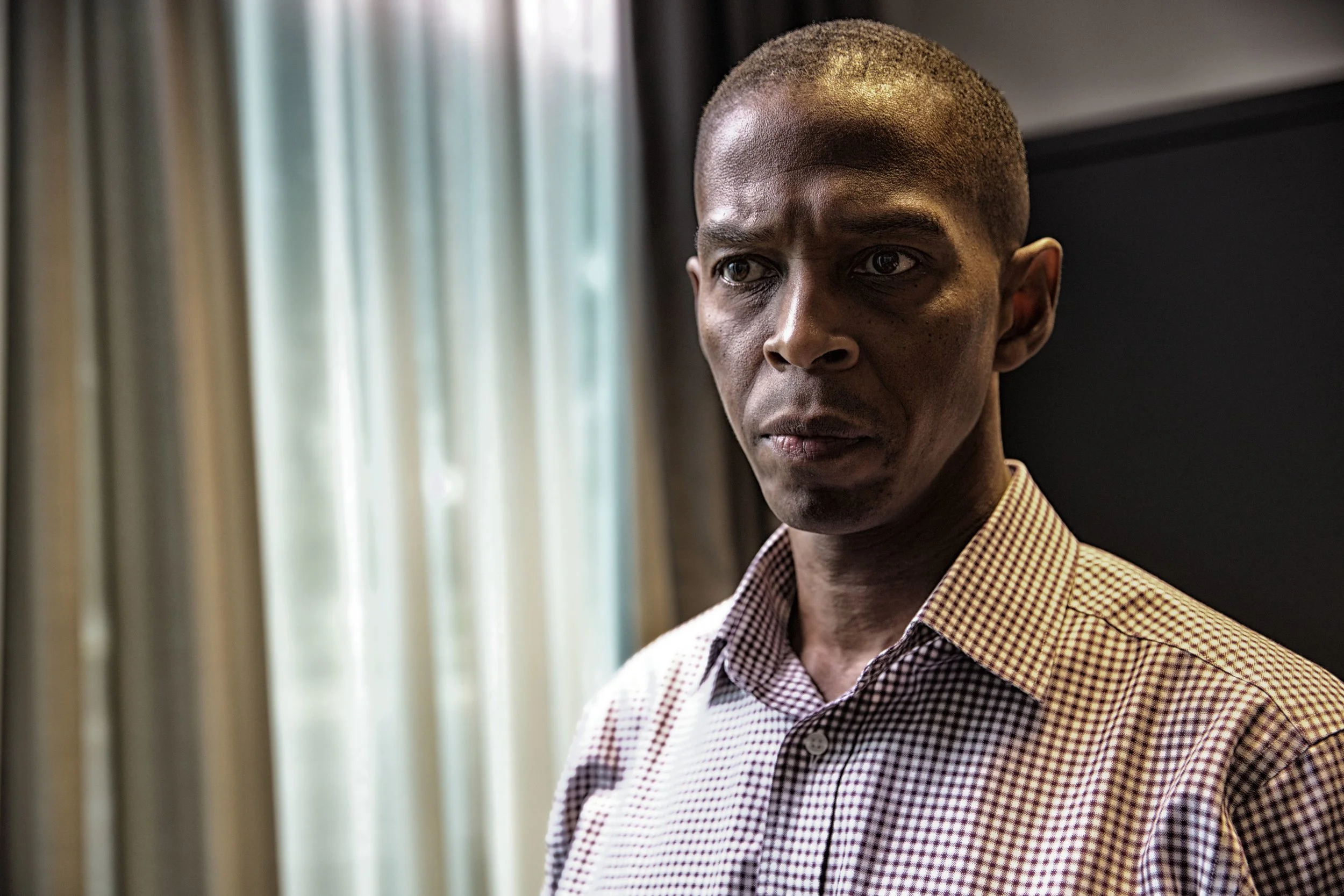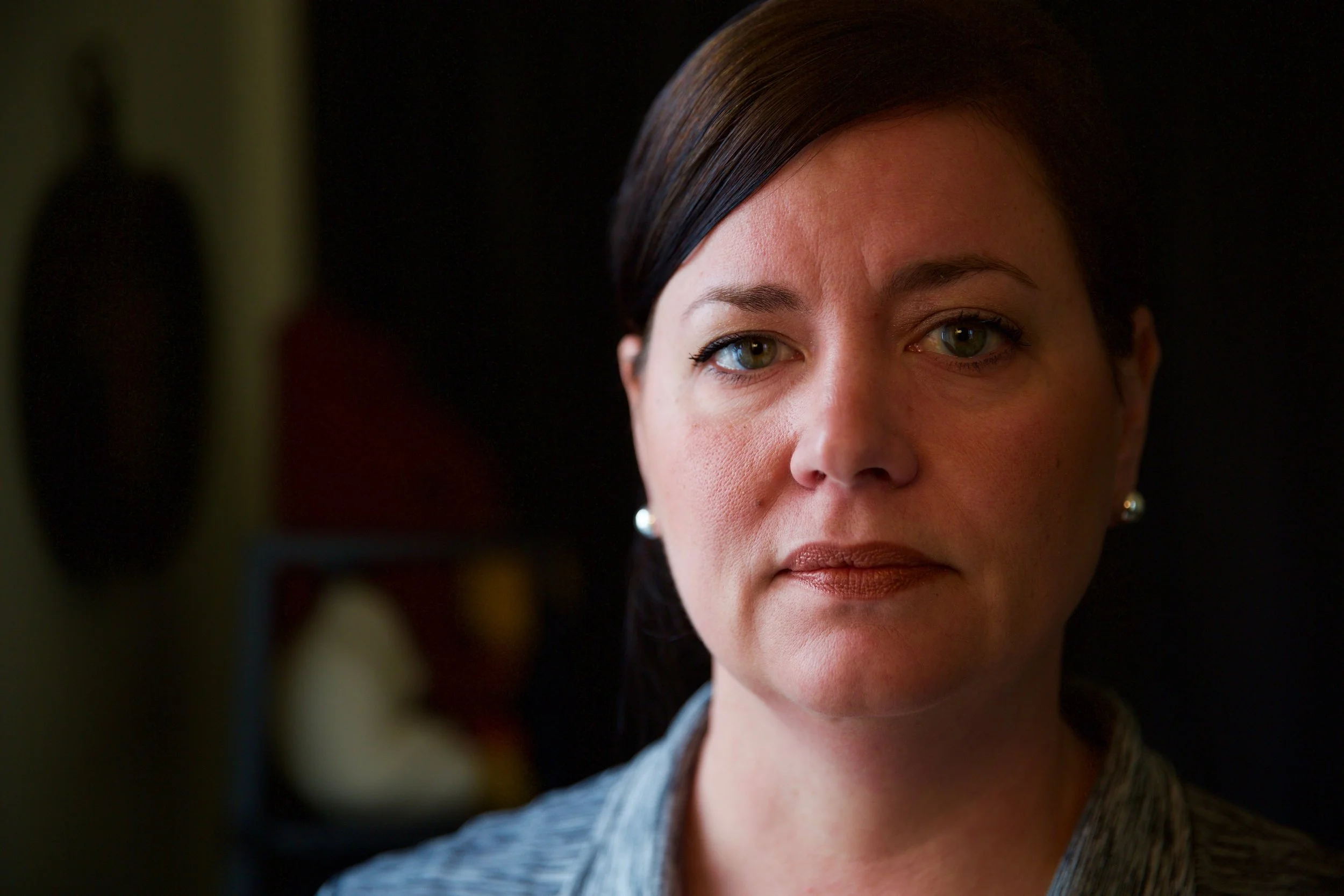Richmond Justice
STORIES + PORTRAITS
Judge Roberts | December 16, 2016
Judge Angela Roberts presided over the Richmond Juvenile and Domestic Relations Court for 26 years. Her election by the General Assembly in 1990 made history; she became the first African American woman in Virginia to serve as a judge. She retired earlier this year, but will return to the bench as a substitute judge starting in 2017.
I’m a child of the 1960s. I grew up forty miles from here, in Bowling Green, Caroline County. It was a friendly town, but there were definitely two towns: one black and one white. I recall watching the news and seeing the unrest, the marches, the police dogs, the riots. I saw news about the Sunday school bombing in Birmingham, Alabama. The four black girls who were killed were my age. I didn’t see any of these things first hand, but I understood that we needed a better world. I decided I wanted to go into law to try to change the world.
I started my career as a prosecutor in the early 1980s. The crack cocaine epidemic was at its height and it had a devastating effect. No one really knew how to respond. The murder rate was at an all-time high. Crime was out of control. The philosophy was: "Get tough—lock everybody up." Across the country, there was a commitment to eliminate parole, to try juveniles as adults. That’s what was done, here and elsewhere, and nobody questioned it. It was a scary time, and a drastic time. And even then, we could tell that the "get tough" practices were affecting black people disproportionately, including here in Richmond.
When I was elected as a judge, the juvenile court was in major flux. Two of the three judges were retiring at the same time. It felt like crack cocaine was controlling everything and families were falling apart. There was an uptick in cases of all kinds—and we weren’t prepared for it. There was no order to what cases would be heard when. Attorneys, police officers, social workers, defendants, witnesses, and family members would often arrive in court at 9:00am and wait until 6:00pm to have their cases heard.
“I’ve had a chance to help determine what works.”
Judges aren’t trained to be managers, but we do have administrative responsibilities. We're charged with the administration of justice. We’re responsible for supervising court personnel and docket efficiency—the schedule of cases and how things flow. So one of the first things I did as a Chief Judge was lead an effort to reorganize the dockets, which resulted in drastically shorter wait times.
In those years, the criminal justice pendulum swung in the direction of punishment. But today it's swinging back to rehabilitation and what works. And I've had a chance to help determine what works. One of my proudest accomplishments came from my work on the Juvenile Detention Alternatives Initiative (JDAI), a project funded by the Annie E. Casey Foundation. Through JDAI, Richmond received funds to experiment with alternatives to putting youth in detention. Before, when a young person was charged with an offense, we would often send him or her to detention until the trial date. The young person would miss school, be separated from family, and be exposed to negative behaviors from their peers in detention. We explored what would happen if young people were not locked up while awaiting trial, and instead sent home on house arrest or placed on an electronic monitor. The alternatives we tried were resoundingly successful—and they cost less money. Practices we adopted in Richmond as part of JDAI have been adopted throughout Virginia.
When determining punishment, we now pay more attention to the effects of substance abuse, learning disabilities, mental health challenges, and exposure to trauma. We respond to neuroscience research showing us that the juvenile brain does not fully develop until the mid-20s. We understand that we need to provide services, support, and opportunities that connect young people to school, employment, and positive role models.
“It’s tragic when judges aren’t able to set these situations right.”
But for all of the attention on juvenile justice, most of what happens in Juvenile and Domestic Relations Court deals with adults. It’s domestic violence. It’s abuse and neglect. It’s paternity and child support. It's custody and visitation. It’s a very busy court that touches on every aspect of the family. And we see the same families come back again and again. Custody cases often never resolve until the child turns 18, and it's tragic when judges aren't able to set these situations right. For example, the law in Virginia favors parents, so even in cases when I might prefer to have a grandparent care for the child, I have to follow the law and grant custody to the parents.
The positive changes that we’ve seen in criminal justice weren’t made overnight. They involved big, cultural shifts with many actors—judges, prosecutors, legislators, multi-agency committees, academics. Both the adult and juvenile justice systems are undergoing reform, and for the first time in a while there is true bipartisan support. We’ve realized that it costs too much money to keep locking people up, and that there’s a better way of doing things. The Governor is working on this, the legislature is working on this, the Department of Juvenile Justice is working on this. I have tremendous respect for the Commonwealth's Attorney for Richmond, Mike Herring, for Sheriff C.T. Woody, and for Chief of Police Al Durham for their approaches to public safety. We've had true community policing for over a decade, and that has resulted in a level of crime much lower than it would be otherwise. I’ve been inspired to work hard because so many other people involved with the justice system work hard and are committed to helping families in Richmond.
As a young law student, if someone had told me that I would become a judge I would have been very surprised. I didn’t think I was smart enough to do it or patient enough to do it—and you do need patience. You also need to be a good listener and be empathetic. But many years into my legal career, an opportunity presented itself. And there were many people who encouraged me to pursue it. The timing was right. And I'm glad about that.
— interviewed December 13, 2016
















